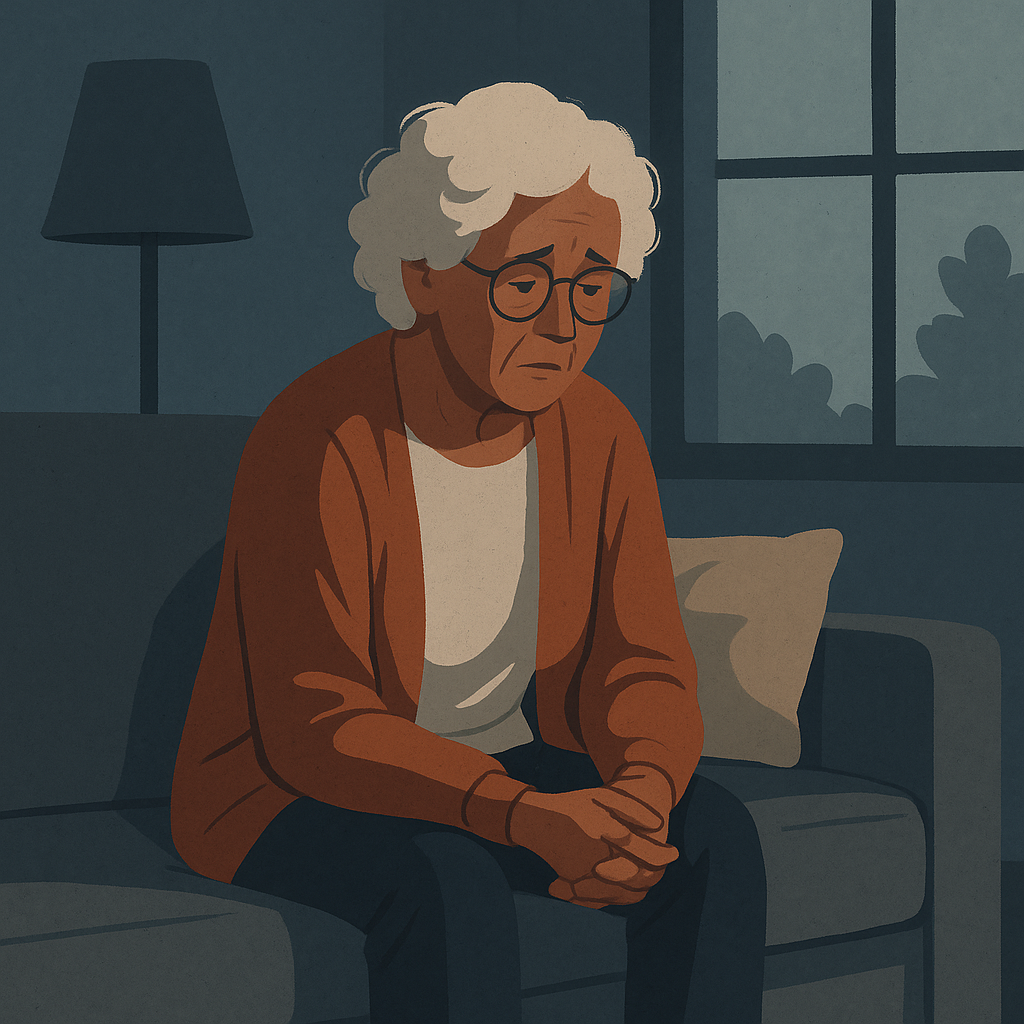Loneliness and Depression After 50: What a 12-Year Study Reveals

We often assume that as we get older, we grow more resilient --- that the challenges of life somehow get easier with time. But for many adults over 50, loneliness can quietly take hold, and when it does, it carries consequences far beyond emotional discomfort.
A powerful 2021 study published in The Lancet Psychiatry sheds new light on this issue. Conducted over 12 years, this population-based cohort study tracked thousands of adults in England and found a strong and lasting link between feelings of loneliness and the development of depressive symptoms.
What the Study Found
Led by Dr. Siu Long Lee and a team of researchers, the study followed more than 4,200 individuals aged 50 and above, using data from the English Longitudinal Study of Ageing. Participants were surveyed over multiple time points, with researchers measuring both their self-reported feelings of loneliness and their symptoms of depression.
Here's what they discovered:
-
Persistent loneliness was a strong predictor of worsening depressive symptoms over time, even after accounting for social isolation and other life circumstances.
-
Those who reported higher loneliness at the beginning of the study were significantly more likely to experience new or worsening depression over the following decade.
-
The study concluded that approximately 18% of depression cases among older adults could be attributed to loneliness --- a striking figure that shows just how powerful the emotional toll of disconnection can be.
Lee, S. L., Pearce, E., Ajnakina, O., et al. (2021). The association between loneliness and depressive symptoms among adults aged 50 years and older: a 12-year population-based cohort study. The Lancet Psychiatry, 8(1), 48--57. https://doi.org/10.1016/S2215-0366(20)30383-7
Why Does This Happen?
Loneliness is not just about being alone. It's the feeling that no one truly sees you, hears you, or understands what you're going through. For older adults, this feeling can be amplified by retirement, loss of a partner, reduced mobility, or children moving away. Over time, these emotional wounds can settle deep and manifest as chronic depression.
And because older adults are less likely to reach out for help --- often due to stigma, pride, or a sense of "not wanting to bother anyone" --- the cycle of loneliness and depression becomes harder to break.
Why It Matters --- and Not Just for Seniors
Although the study focused on adults over 50, its lessons apply to all of us. It shows us that loneliness is a risk factor, not just a state of mind. It's a condition that can slowly erode our mental well-being if left unaddressed --- and it deserves the same attention and care as any other health issue.
What We Can Do
At KindTalks, we believe that connection isn't just nice to have --- it's essential. Whether you're 15 or 85, reaching out and being heard can make all the difference. Sometimes a simple conversation --- even with someone you've never met before --- can offer relief, validation, and hope.
That's why we've created a space where empathy comes first. A space where no one is "too old," "too late," or "too broken" to be listened to and understood.
🌟Final Thought
Loneliness can be invisible --- but its effects are real and
measurable.
This study reminds us that by fostering connection, we can help prevent
depression before it takes root.
Not just for others. For ourselves, too.
Let's stay connected. And let's make sure no one feels forgotten.
Related Articles
Loneliness is often imagined as a private, individual experience --- a quiet ache that lives inside us, separate from the world around us. But what if...
When we hear the word "loneliness," we often imagine a quiet evening alone or someone feeling left out at a party. But research is increasin...
Health** We often think of heart disease as being caused by smoking, poor diet, or lack of exercise --- and of course, these are major factors. But th...